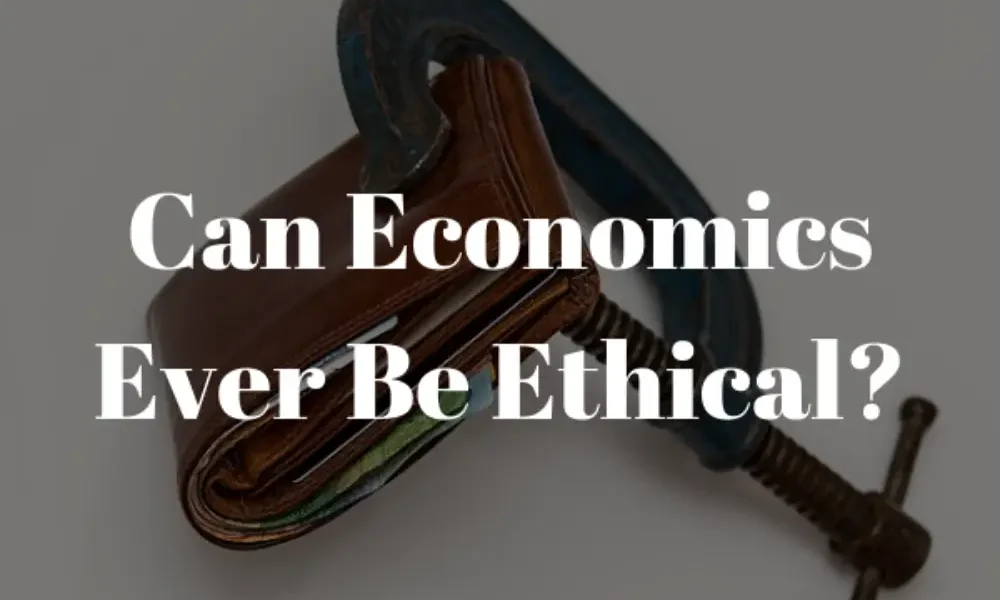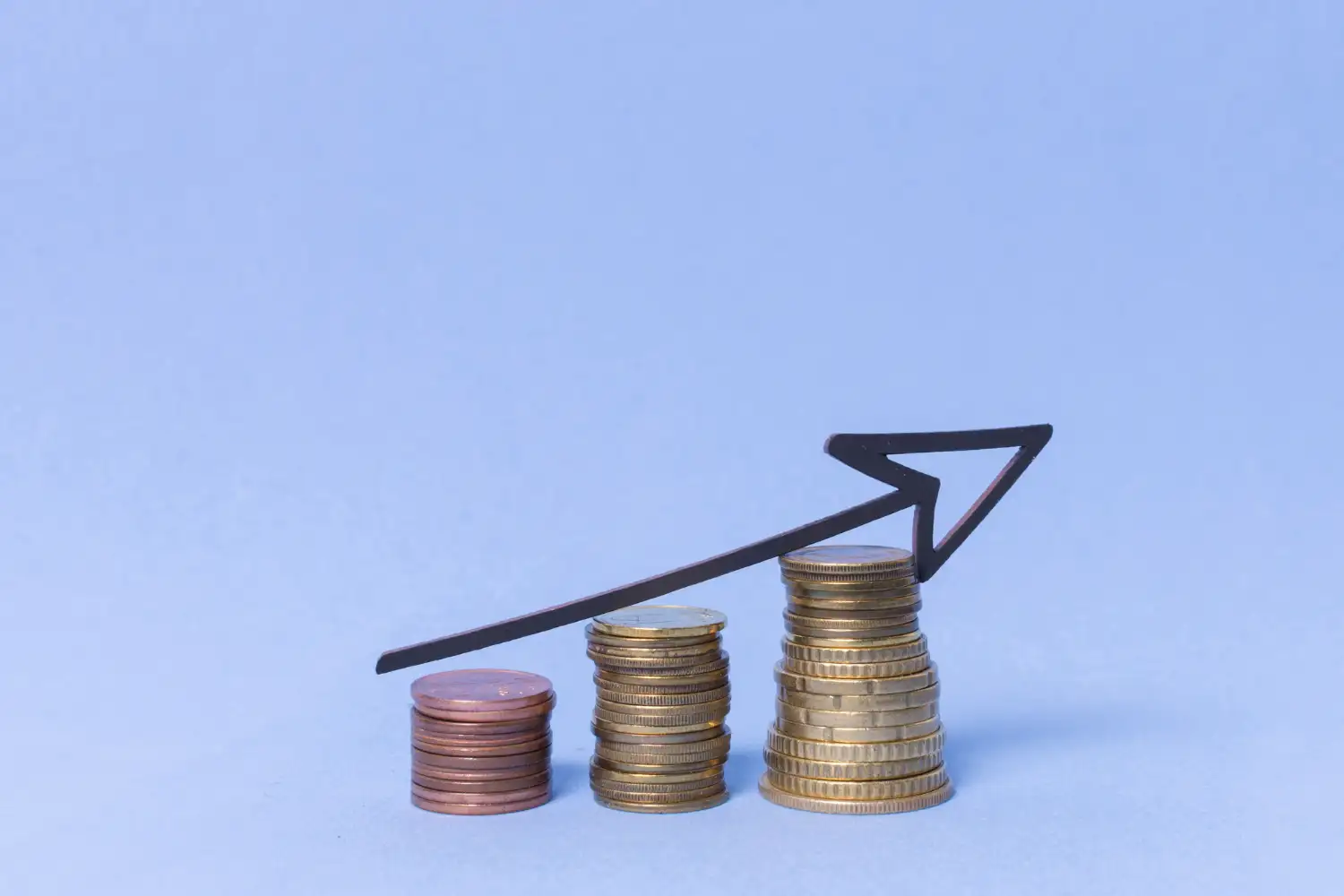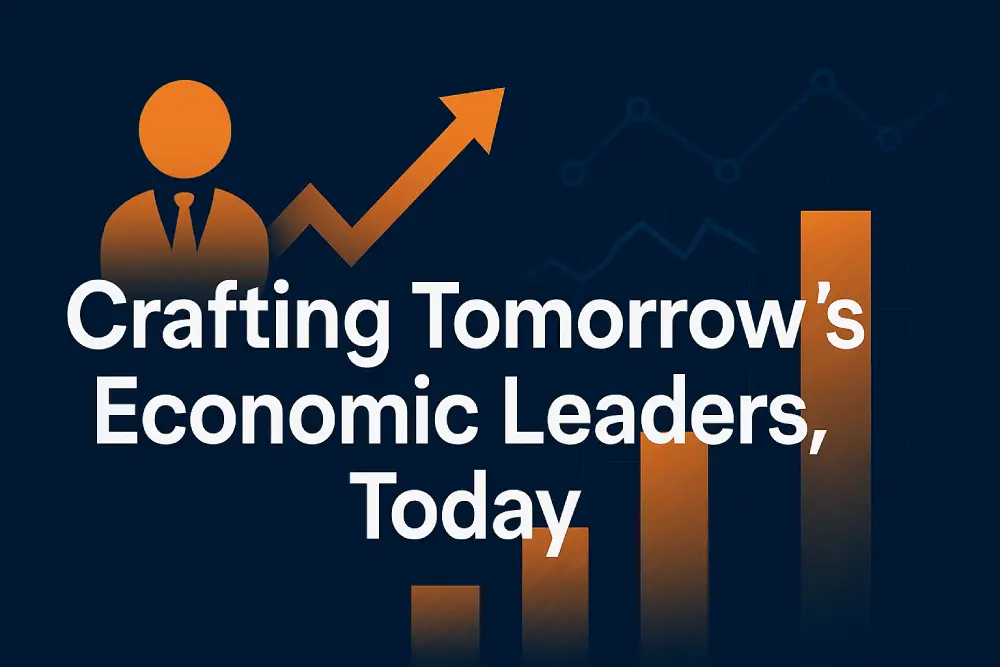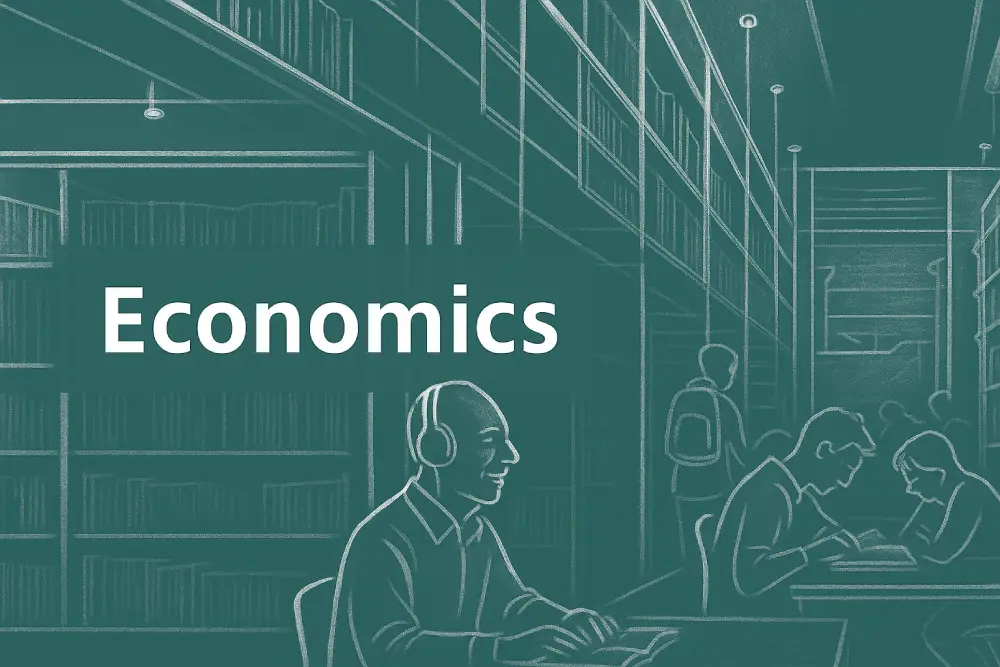From individuals and organisations to national governments, the knowledge of economics helps measure the production, distribution, and consumption of wealth and goods. The Politics, Philosophy, and Economics (PPE) Major is a comprehensive programme that enriches the study of economics with a broader context, enabling students to understand current financial conditions and analyse the evidence behind how we arrived at today’s economic landscape.
What is the Meaning of Economics
Technically speaking, economics is part of the behavioural and social sciences that keeps track of the production and consumption of goods and services, along with the allocation of these goods and services among its people.
Usually, Economics is divided into two branches: macroeconomics and microeconomics. Microeconomics operates on a personal level, concerning individuals and businesses. Whereas, Macroeconomics takes a broader look at nations and governments and deals with issues like inflation, economic growth, national income, unemployment, etc.
However, the study of economics is more concerned with the choices and decisions made by individuals or organisations that affect the economy. Therefore, the Politics, Philosophy and Economics Major programme offers an advanced take on the relation between the three disciplines and how they impact the economic decisions of governments, companies, and individuals under a shared economic system.
How Economics, Politics & Philosophy are Related?
Economics, Politics, and Philosophy are separate disciplines, yet the connection they share is unmistakable, especially in the present scenario. The Politics, Philosophy and Economics Major course is a study that helps understand how any society works, especially in a global context. The programme is also aimed at understanding how economic choices are influenced by political forces and the philosophical questions of justice and morality.
Today, the economy and politics go hand-in-hand, which is why it has become important to study the correlation between the two subjects. The PPE course takes it a bit further by including philosophy to procure rare insights that may help change society for a better tomorrow.
Why Interdisciplinarity Matters in the 21st Century
In the 21st century, the lines between academic disciplines are increasingly blurred. Global issues such as climate change, migration, artificial intelligence, and social inequality cannot be tackled through a single lens. This is where an interdisciplinary degree like PPE stands out. It does not isolate knowledge within academic silos but instead trains students to see the connections between systems, beliefs, and structures.
For instance, understanding the political ideologies behind economic policies or the ethical implications of international trade agreements gives students the tools to challenge assumptions and propose well-rounded solutions. A PPE graduate is not only a thinker but also a problem solver, capable of analysing an issue from multiple perspectives and engaging with complex societal debates. Interdisciplinary learning is not just an academic luxury; it is a necessity in a world that is becoming increasingly interconnected.
Markets or Morals: Can Economics be Ethical?
There is no denying that human morality has been subjected to a moral dilemma. There is a genuine debate surrounding economics and ethics, and what should be deemed moral or immoral. This is why the study of Politics, Philosophy and Economics Major plays a huge role in understanding how policies, markets and morals are determined.
The term ‘ethical economics’ may have been popularised recently, however, it is safe to say that the understanding of ethics is interpreted differently by different people. Hence, it is important to establish first that ethical economics stands for the practice of using resources in a sustainable way.
Explore Jindal School of Government and Public Policy
Government and Public Policy Courses

The Role of Ethics in Global Economic Crises
Understanding the ethical dimension of economics becomes even more significant in the wake of the global financial crisis. Events such as the 2008 financial collapse, the Eurozone debt crisis, and, more recently, the economic disruptions caused by the COVID-19 pandemic have raised urgent moral questions about accountability, equity, and justice. These crises have highlighted how unchecked market forces, driven primarily by profit motives, can exacerbate inequality and undermine public trust in institutions.
Ethical economics seeks to question not just how markets operate, but how they ought to operate. Should governments bail out failing corporations using public money? Is it fair to prioritise economic growth over environmental sustainability or social welfare? Such dilemmas demand a multidisciplinary approach—precisely what the PPE major offers. By integrating philosophical reasoning and political theory with economic analysis, students can critically evaluate the systems in place and contribute to creating models that prioritise human well-being and long-term sustainability over short-term profit.
How Important is a Politics, Philosophy and Economics Major In 2025?
The Politics, Philosophy and Economics Major course has great value in today’s time to understand the complex functionality of a society. From a basic standpoint, modern economics gets its origin from political theory and moral philosophy. Based on these findings, it has been increasingly believed that it is difficult to study politics without considering economic structures and philosophical intentions.
Therefore, the scope of PPE degree in 2025 is extremely promising for students and young thinkers alike, who wish to thoroughly understand the correlation and use their knowledge to make impactful changes to the system. If you are worried about the career pathways related to the PPE degree, here are a few examples of the industries you can actively look into: Journalism, Banking & Finance, Civil Society & Non-Governmental Organisations, Consultancy, Data Analytics, Business Management, Governance, Law & Academia, ThinkTanks & Policy Management, etc.
| Industry/Field | Potential Roles |
| Journalism | Political Correspondent, Editorial Analyst |
| Banking & Finance | Economic Analyst, Investment Strategist |
| NGOs/Civil Society | Programme Officer, Policy Researcher |
| Governance & Public Policy | Policy Advisor, Government Analyst |
| Law & Academia | Legal Consultant, Lecturer in Political Economy |
| Data & Consulting | Strategy Consultant, Data Policy Analyst |
| Think Tanks | Policy Fellow, Research Associate |
Real World Application for PPE Graduates
Graduates with a background in Politics, Philosophy, and Economics are uniquely equipped to influence real-world policy at both national and international levels. The skills developed during the PPE programme—analytical reasoning, moral judgement, political insight, and economic literacy—allow graduates to thrive in policy formulation, implementation, and critique.
PPE alumni from globally renowned universities have gone on to become prime ministers, economists, legal scholars, social activists, and senior policy advisers. For example, former UK Prime Minister David Cameron and Nobel Prize-winning economist Amartya Sen both studied PPE. These examples demonstrate that the PPE degree is not just theoretical; it has real-world relevance and impact. In the Indian context, the increasing interdependence of government policy and economic strategy means that PPE graduates can contribute meaningfully to areas like climate change policy, digital economy governance, education reform, and healthcare equity.
The Perks of Studying Politics, Philosophy and Economics Major at JGU?
At the O.P. Jindal Global University (JGU), a Politics, Philosophy and Economics Major programme is being offered in collaboration with two schools – Jindal School of Government & Public Policy (JSGP) and the Jindal School of Liberal Arts & Humanities. It is an undergraduate honours course with a 4-year interdisciplinary curriculum consisting of all three subjects in great detail.
After obtaining a graduation degree, students can acquire admission for the master’s programme in just one year, specialising in subjects related to the PPE discipline. Through JGU’s expansive global network, students gain study abroad opportunities in leading universities across the globe, providing students with a practical look into the global economic and political systems and the policies.
Skills Acquired Through PPE and Their Career Value
The Politics, Philosophy, and Economics major is more than a foundation in three academic areas; it is a skill-building journey. Throughout the course, students develop a critical set of transferable skills that are highly valued across industries. These include the following.
| Skill | Description |
| Analytical Thinking | Breaking down complex problems and identifying key issues or patterns. |
| Ethical Reasoning | Evaluating the moral aspects of policies and decisions. |
| Quantitative Proficiency | Applying data analysis to support or question economic theories or policies. |
| Communication | Expressing complex interdisciplinary ideas clearly and persuasively. |
| Policy Evaluation | Judging the effectiveness, fairness, and efficiency of public policy. |
These skills position PPE graduates competitively for roles in national and international organisations, think tanks, multinational corporations, programme development, consultations, etc. Employers across both the private and public sectors increasingly seek candidates who can combine ethical judgement with political awareness and economic insight—qualities central to a PPE education.





